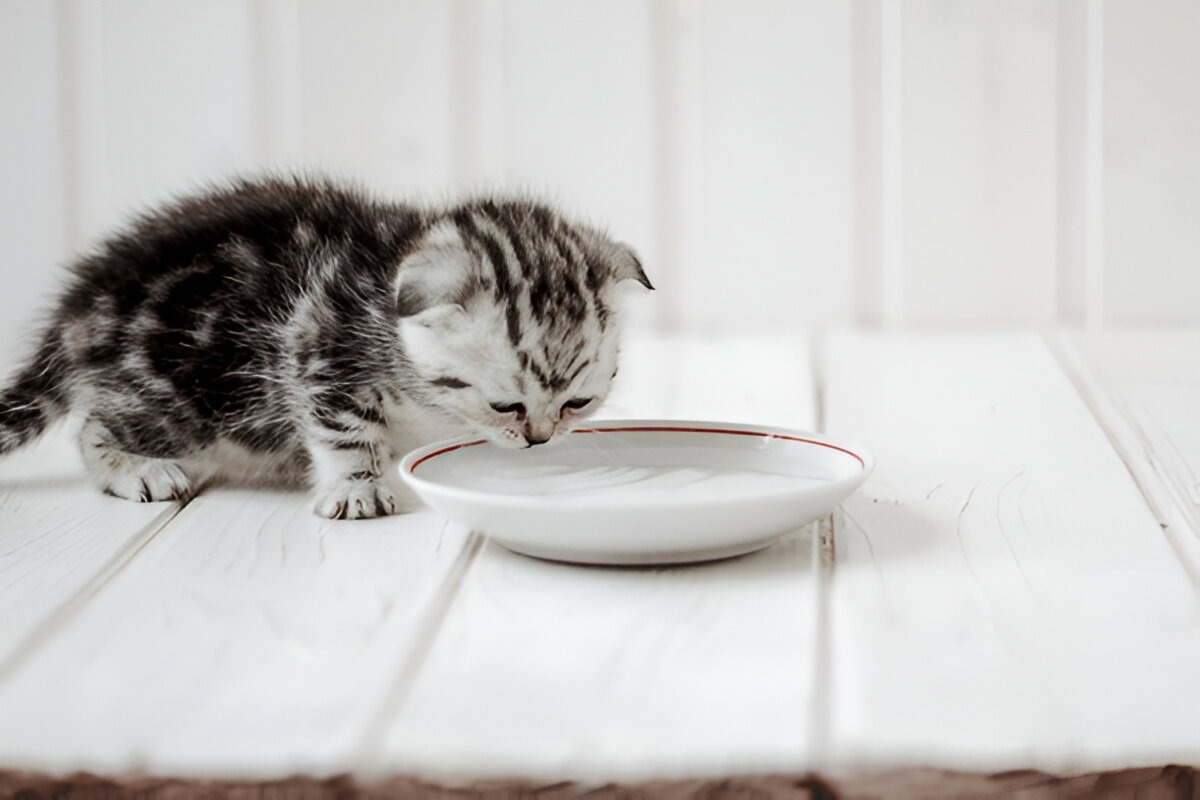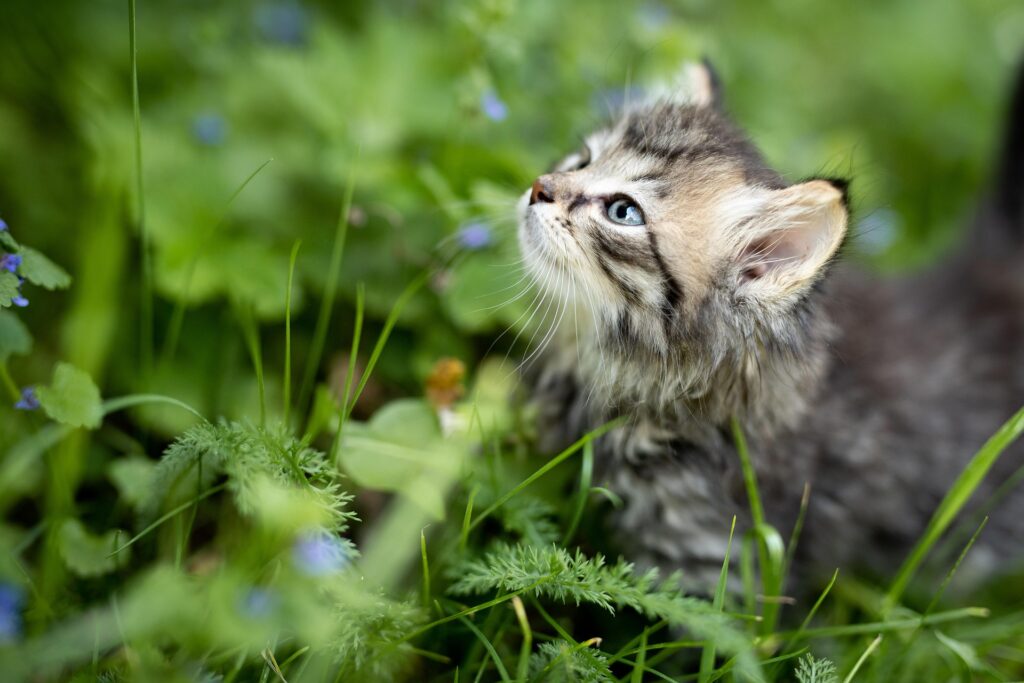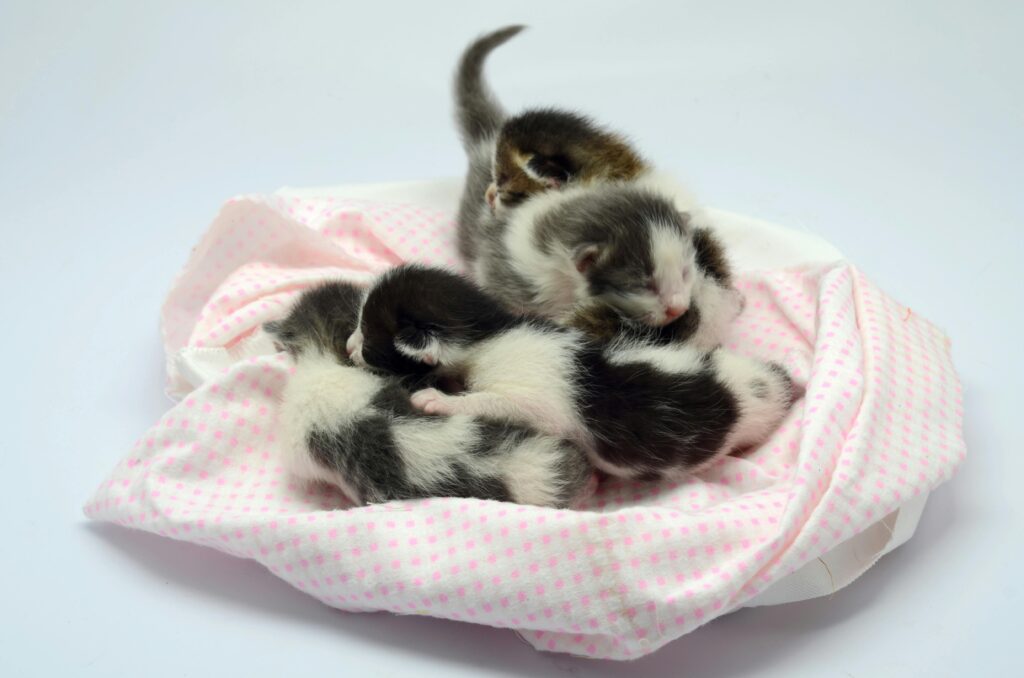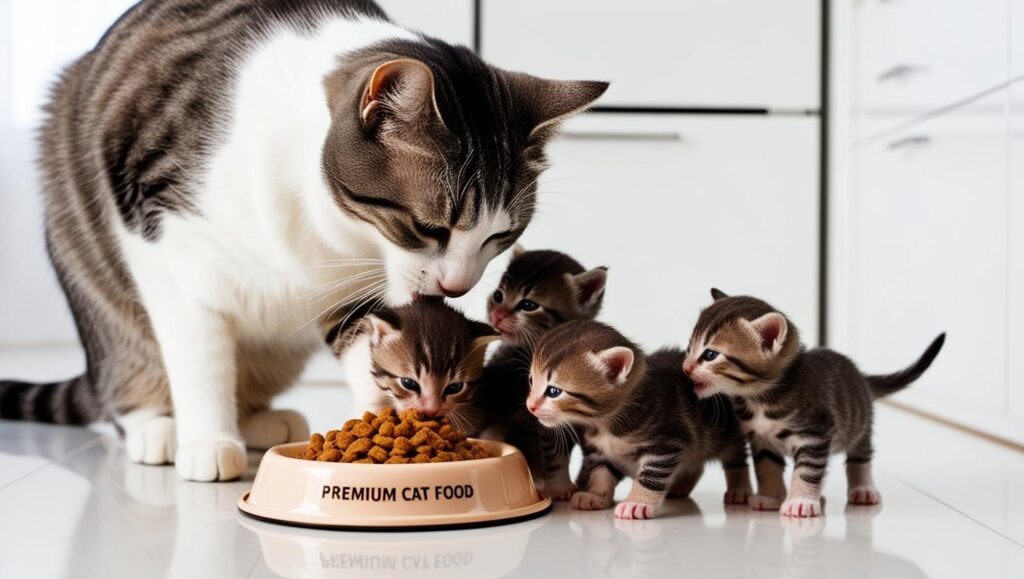Can Kittens Drink Water?
Kittens are cute, cuddly and are always full of curiosity. But what we need to understand is their feeding requirements. Now, one question that always seems to be a point of concern among cat owners is whether a kitten can drink water. In this article, we will discuss the role of water in a kitten’s life, their hydration needs and ways through which they can be hydrated easily.
Developmental Stage of Kittens: An Overview
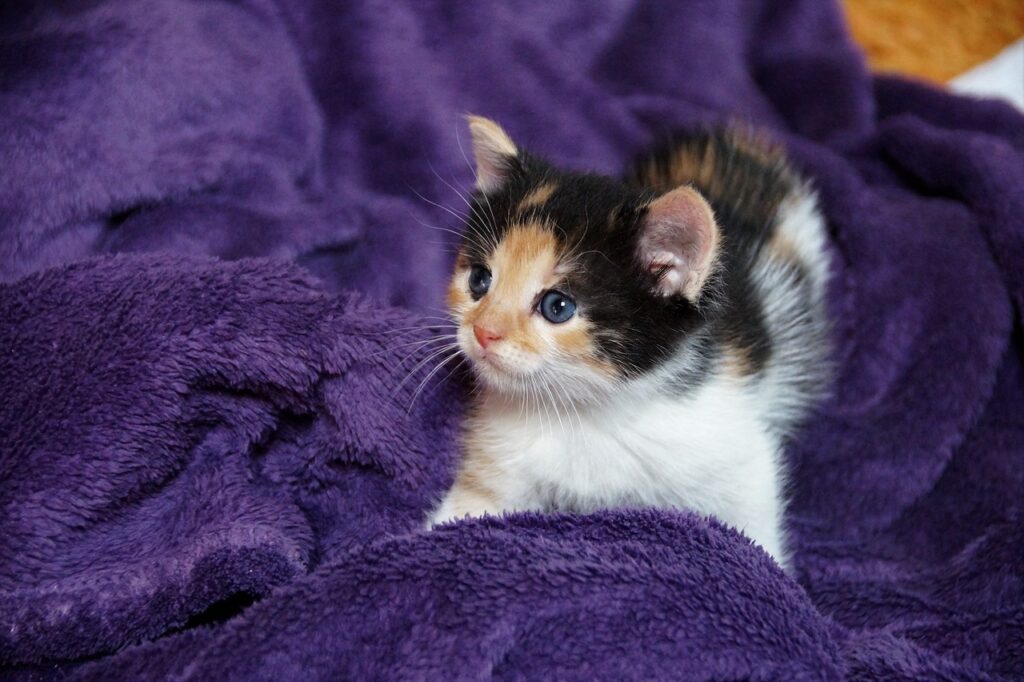
Image by ivabalk
One of the most interesting phenomena in the life of a kitten is that they are born with fully shut eyes. Such events occur naturally in order to shield the sensitive eyes of the kitten during the very first moments of its life. Usually, kittens begin to open their eyes anywhere between 7 to 14 days.
However this can be highly dependent on genetics and physiology of a particular kitten of a specific breed. Closed eyes also assist kittens in protecting their eyes from the harsh glare and bright lights of the outside world. Other protective structures like the eyelids assist in maintaining eye moisture to keep dryness and irritation at bay.
Why Is Water Important for Kittens..?
All living creatures, which also includes the kittens, need Water. Water is an important for their health. Take look at why kitties need water.
- Hydration: Water is vital for kittens to stay and function properly. It helps in processes such as digestion, circulation, and thermoregulation.
- Digestion: Water assists in the overall digestion of food and in the assimilation of its nutrients. Food is conjugated with water so its nutrients can be distributed around the body.
- Kidney Function: Ample amount of water is necessary for proper functioning of kidneys since the body requires disposing off wastes and impurities.
- Temperature Regulation: Water is needed to control the body heat as it cools the kittens, and prevents them from getting heat up.
When do kittens start taking water?
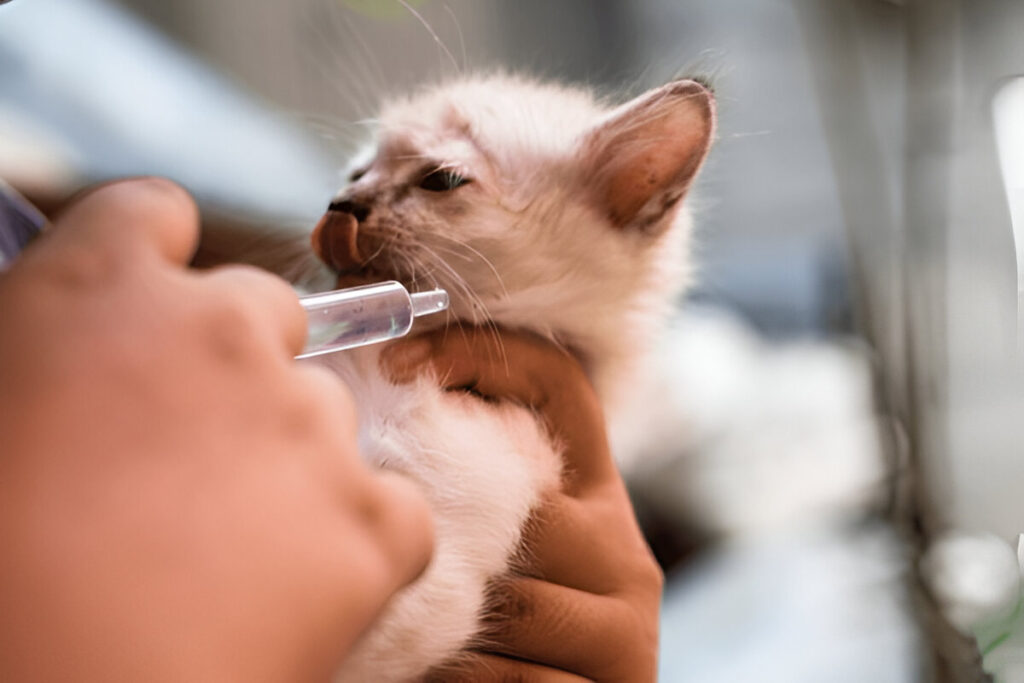
When kittens begin transitioning from their mom’s milk to solid food at around four weeks, they also begin drinking water. From this point onward, their diet starts to change, and water is needed for the hydration and realization of their body.
Water introduction is important with kittens, since it assists digestion, facilitates nutrient absorption, and is vital for kidney function. It helps to ensure a healthy, active cat since fresh will also be available to them with the solid food they eat.
How much water should a kitten consume an optimal quantity?
Moving forward, it is important to note how deeply dependent a kitten’s hydration needs are on different circumstances, such as the age, size and level of activity of the kitten. Ideally, if a kitten consumes dry food, it would need to have a constant supply of fresh water. If you want to encourage your kitten to drink some water make sure that you follow these procedures and policies:
- Provide Fresh Water: It’s important to always have fresh, clean water available for your kitten. Make sure to replace it daily.
- Use a Shallow Bowl: A shallow round saucer-style bowl should make a good water bowl for the kittens. Don’t use deep bowls as they might have difficulty reaching the bottom to drink.
- Monitor Water Intake: It is also advisable to keep tabs on a kitten’s fluid intake since some may not reach the recommended volume of water. Always be vigilant for significant changes to their normal drinking pattern – talking to a vet expert is advisable in such cases.
- Wet Food: A kitten actively seeking food will have a much easier time consuming wet kitten food as it is more liquid based than dry. Attempt adding wet food to your kitten’s meal log.
Common Myths About Kittens and Water
There are numerous water-related myths that are connected to kittens. Let us find out the most popular assumptions and confirm or dispel their relevance:
- Myth: Kittens do not need water if they are drinking milk. Fact: As much as kittens are known to consume milk from their mothers, they still require water especially when hard substances are being fed to them.
- Myth: Kittens can drink any type of water. Fact: There has to be a proper supply of clean, good water for the kittens. Avoid giving them too cold water or water that has additives.
- Myth: Kittens do not need to drink water if they are eating wet food. Fact: Though a greater portion of wet food is water, it ought to be complimented with water for kittens to be hydrated.
The Importance of Proper Hydration for Your Kitten
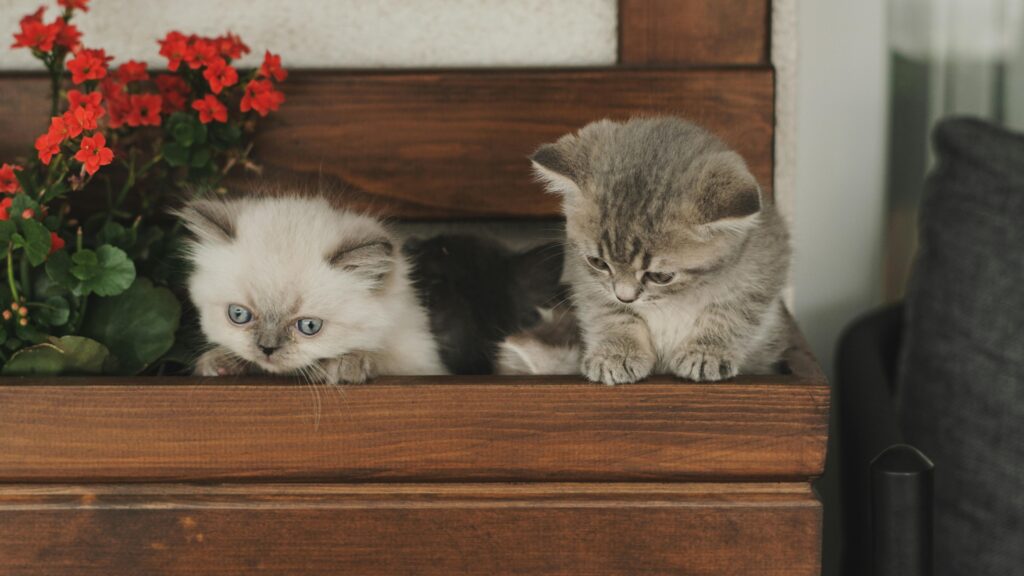
It can’t be overemphasized that kittens must stay properly hydrated because poor hydration can adversely affect a kitten’s health. Here are some key benefits of proper hydration:
- Healthy Digestion: Water is important in digestion and in the absorption of nutrients from food for kittens’ proper growth and development.
- Kidneys: It helps flush out waste products from the body and aids the functionality of the kidney.
- Energy Levels: Water is paramount in the process of maintaining the energy levels of the body which makes it possible for the kitten to not only remain active but also to play around.
- Skin and Coat Health: Water is essential for maintaining kitten’s skin and coat and is thus a critical aspect of their wellbeing and overall body structure.
Kittens’ Warning Signs of Dehydration
It’s necessary to ensure that one avoids dehydration which is utterly essential to sustain. This is where the following comes in. The signs one should watch out for:
- Dry Mouth and Gums: The most basic indicators of dehydration and low fluid levels are sticky, dry gums coupled with a parched mouth.
- Lethargy: Dehydration may also result in a state in which the kitten appears dull or inactive which is extraordinarily uncommon.
- Loss of Appetite: Nausea or low hydro levels may result in an appetite loss as well as interest in food.
- Sunken Eyes: In severe dehydration instances, cats may develop sunken eyes as a symptom.
How to promote Kittens to Drink More Water
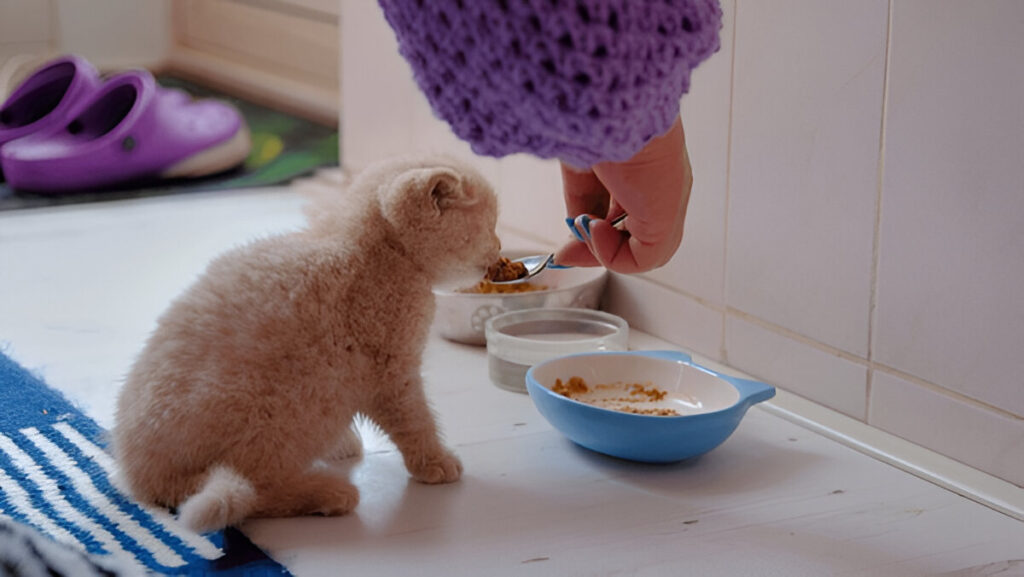
It is advisable to add in a few more techniques which would encourage kittens to consume higher liquid levels, especially water. That specifically would include:
- Wet the Food: Describe your goal and add ingredients to kitten food so it absorbs water and contains a larger number and volume of liquids.
- Utilize a Water Fountain: Water fountains are fun shapes and sizes and an easy way to entice kittens who enjoy running water.
- Provide Ice Cubes: A large number of kittens enjoy sucking on ice cubes, which is a great way to level up hydration consumption while also being fun.
Taste The Water: Kittens may find a water with a splash of tuna juice or a bit of chicken broth exciting.
The Importance Of Veterinary Attention
Prevention is better than cure and such sentiments stand for monitoring a kitten’s growth and general health as well. Suggestively, a kitten can be taken to a vet for regular checkups to remain stress free.
There are frequent speculations when should one begin feeding her. Kittens need advice concerning bfeeding, whether hydration, feeding nutrition or about a disease in particular.
The Importance Of Sociability
It is imperative for kittens to be sociable. This is particularly important since kittens will grow up to be children exhibiting more balanced and amicable behavior. The role of socialization is equally important for kittens.
They have to be taken to different people, different buildings and animals. It is this exposure that reduces the amount of fear or anxiety and suffices for positive interaction.
The Importance Of Castration And Ovarian Suppression
Kittens do require a specific dose of casual & normal exposure and aggression. This is best obtained through tuning & neutering. With these procedures, it becomes easier to control the growth of the kitten population and in some cases, prevent certain diseases. But one must always consult professionals to confirm the best timeframe for neutering or spaying.
Final Words:
Protection of the Kittens and Their Health
At last, every kitten requires a large momentum of hydration and with this momentum in stand the overall health of the cat will improve greatly. Water plays a vital role in a kittens healthy digestion, normal functions of the kidneys, maintenance of energy levels, along with a shiny and thick coat. Assure yourself that water is changed the next time and kittens are encouraged to drink more.
Frequently Asked Questions
Q: At what age do kittens begin to drinkwater?
A: Kittens usually commence drinking water at approximately the age of four weeks, as they start the weaning process from their mother’s milk and move towards solid feed.
Q: How do you determine the amount of water an individual kitten needs?
A: The volume of water that a kitten would require is determined by its age, size and even level of its activity. It’s more like a rule that kittens should have unfailing access to clean water all the time.
Q: What are the signs and Symptoms of Dehydration in kittens?
A: Dehydration has observable signs and symptoms in kittens; these include dry mouth and gums, lethargy, absence of appetite and even sunken eyes sockets.
Q: How can I get my kitten to drink more water?
A: You could even add tuna juice or chicken broth to the water, add ice cubes, use a water fountain, or dilute the food with water to promote your kitten’s appetite.
Q: In a way, why is it that kittens should be maintained at an adequate level of hydration?
A: For the young kittens, being adequately hydrated is fundamental since it helps in the maintenance of sound digestion, kidney functioning, energy levels as well as skin and coat conditions.
Through knowing the specific requirements of baby cats, you can render aid in enhancing their growth and development through appropriate care. In all cases, including the introduction of a new water supply, the effort should be aimed at forming a favorable environment for the baby cats diet.
Yuns Legdm is a passionate advocate for pet care and the founder of this website, dedicated to providing valuable information for fellow pet lovers and veterinary professionals worldwide. With a deep love for animals, Yuns created this platform to connect passionate pet owners with expert insights from veterinarians around the globe.
This website grows with you—the passionate pet owners and veterinary experts—creating a trusted space where knowledge, experience, and love for animals come together. Whether you’re seeking advice on pet health, nutrition, or general well-being, this platform is here to support you on your journey of responsible and loving pet care.

